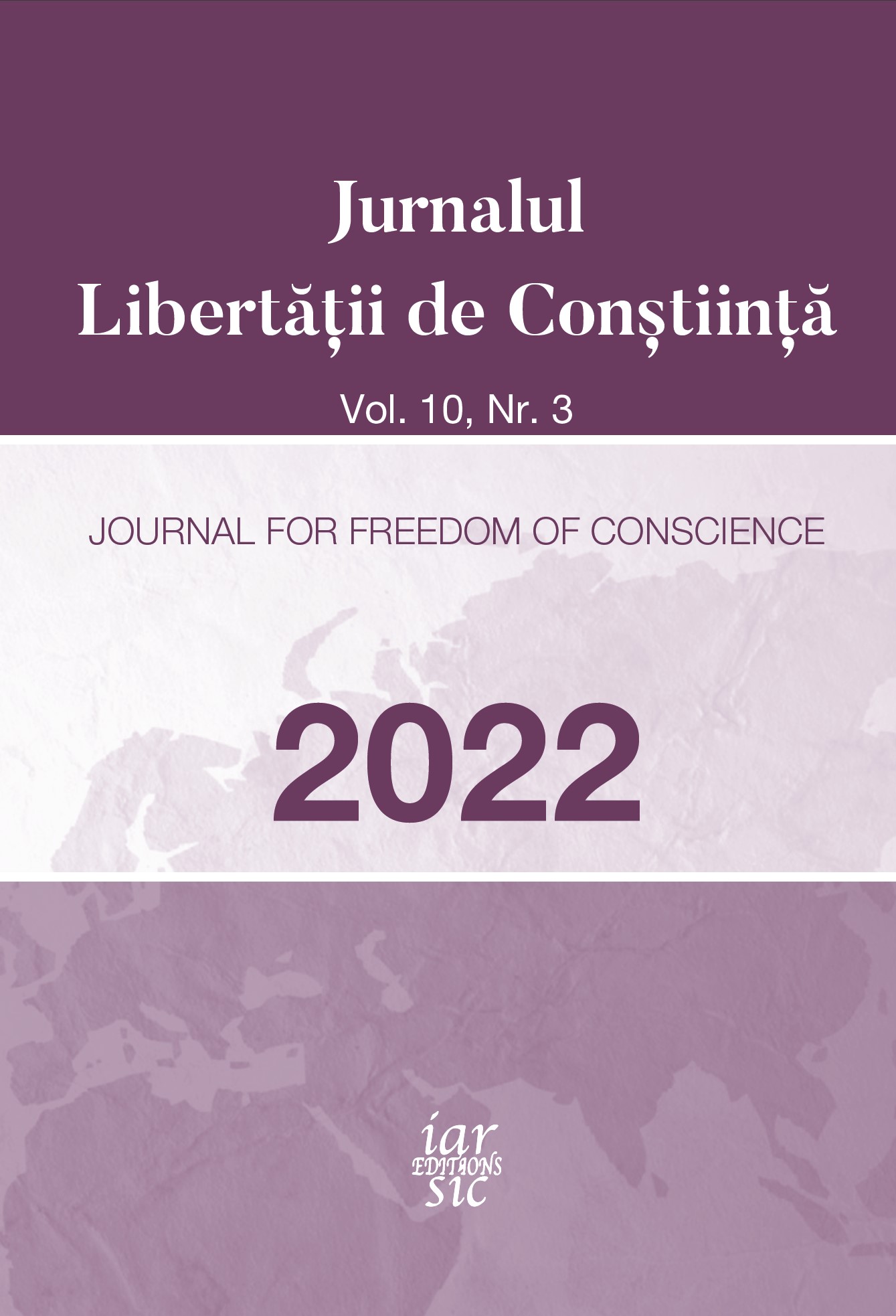CONCEPTUL DE CULTURĂ ORGANIZAȚIONALĂ ȘI RELATIVISMUL CULTURAL, ÎN CONTEXTUL LIBERTĂȚII RELIGIOASE
The Concept of Organizational Culture and Cultural Relativism, in the Context of Religious Freedom
Author(s): Samuiel BâlcSubject(s): Christian Theology and Religion, Human Rights and Humanitarian Law, Culture and social structure , Theory of Communication
Published by: Editions IARSIC
Keywords: culture; cultural relativism; religious freedom; communication; community;
Summary/Abstract: Organizational culture consists of norms of conduct, values, aspirations and expectations, beliefs and habits. There are certain community values that encourage a certain type of behavior within them: from the way they dress, to the way they resolve conflicts. Organizational culture differentiates one community from another. The organizational culture of the community generates how the activities are structured within the community and the relationships between people, the links with the external environment, but also the results obtained within the community because it indirectly affects the motivation, loyalty and creativity of the community members. There are communities that have a culture of power, where the formal leader leads by a strict control. At the opposite pole, there are communities that have a team-type culture, where what matters is everyone’s participation in a collective effort for the common good, and which value members’ creativity and communication. There are also communities that have an academy-like culture, where the emphasis is on personal development and attracting individual talent. There is an individualistic approach to community and a holistic approach. Within the individualistic approach, each initiative is configured on an open stage, but also behind the scenes of the others’ interpretations. When individual participation is hindered, the risk of dysfunction and decreased performance is very high. From the holistic perspective, culture means norms, values, patterns of behavior, rituals, traditions, independent of the individual, made up of either cognitive, normative or affective elements. In the context of religious freedom, cultural relativism must also be considered. In such a society, man has to face an avalanche of information, customs, beliefs, religions. The cultures, characteristic of some peoples or some geographical spaces, ended up intersecting more and more often, coexisting in the same society and exerting a special pressure on the formation of the individual. Religious pluralism came to have an increasing influence on culture. Considering all these things, in the present article the concept of organizational culture and cultural relativism will be particularly highlighted, in the context of religious freedom.
Journal: Jurnalul Libertății de Conștiință
- Issue Year: 10/2022
- Issue No: 3
- Page Range: 275-283
- Page Count: 9
- Language: Romanian

